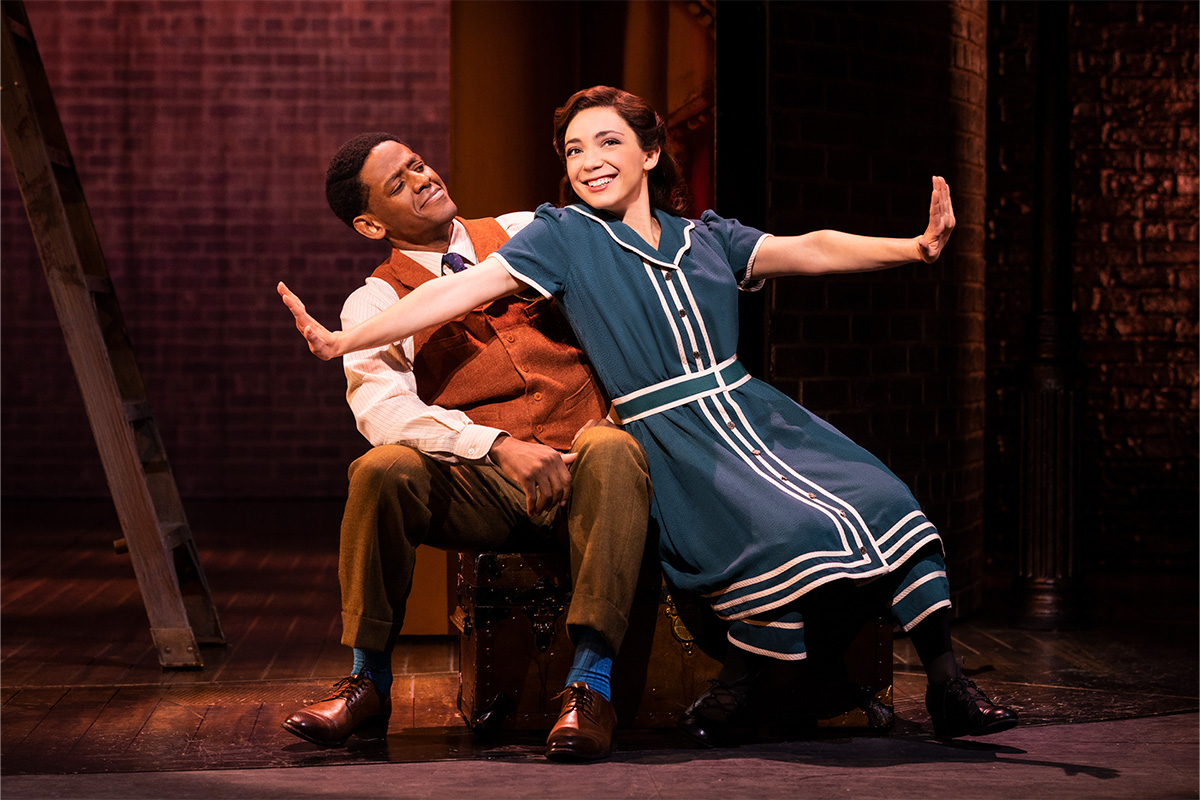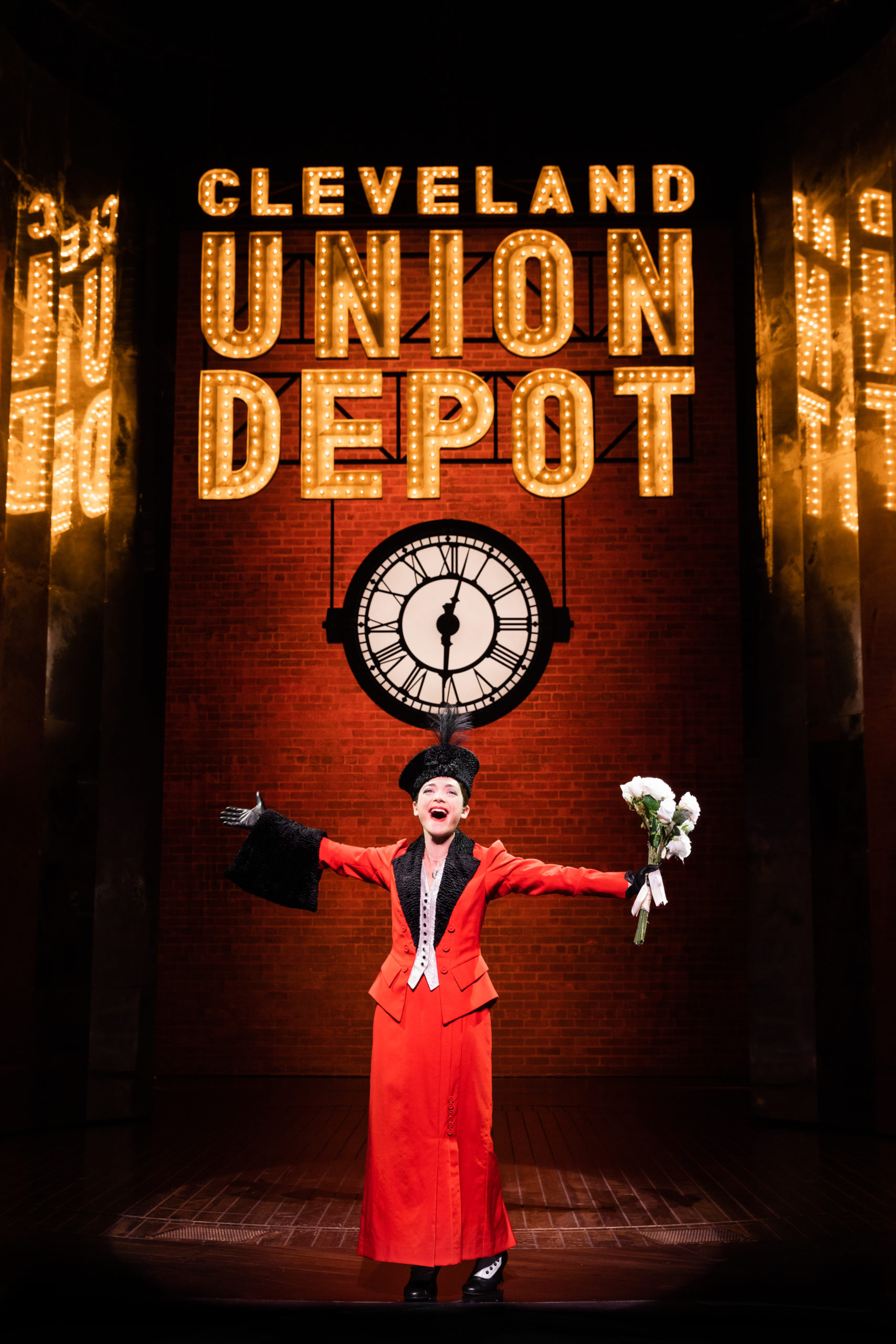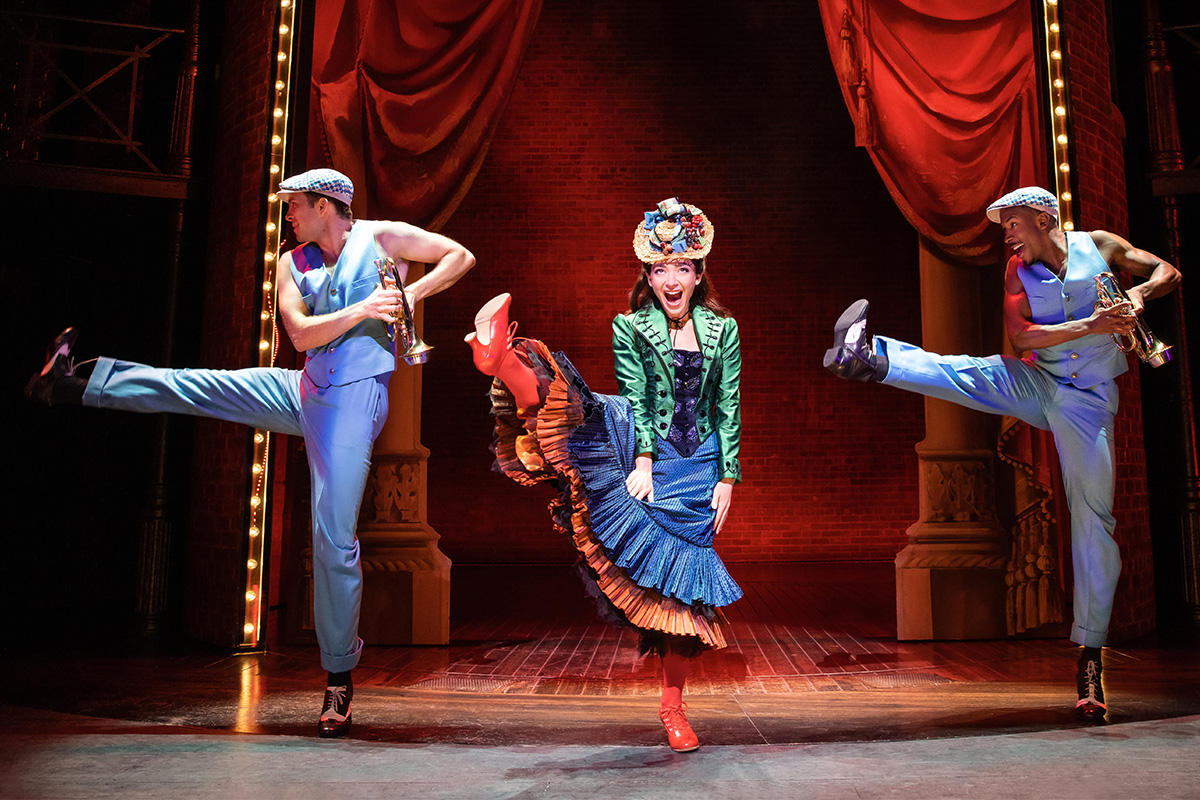Actress and singer Julie Benko is having the time of her life. After appearing in shows across the country, including the recent Broadway revivals of “Fiddler on the Roof” and “Les Misérables,” Julie was cast as Beanie Feldstein’s standby in the current revival of “Funny Girl.” While covering Beanie, she went on as Fanny 26 times, earning raves on social media and a feature article in the New York Times. When producers announced that Lea Michele would be taking over the role, Julie also received a promotion: a guaranteed performance once a week on Thursday evenings. And this month, she is starring full-time as Fanny until Lea Michele starts on September 6th.
I was in the audience for Julie’s April 29th debut. From her very first scene, I knew I was watching the birth of a new star. In my review for FF2 Media, I called her “luminescent” and noted the freshness of her interpretation. It has been a true pleasure to watch more people discover her, and I’m humbled to be part of her journey.
Julie graciously spoke to me during one of her Mondays off about stepping into the “Funny Girl” spotlight, how much she loves playing Jewish roles and her new album.

This interview has been lightly edited and condensed for clarity.
Let’s go back to your first performance, one week into the run of “Funny Girl.” From my vantage point, you were extremely confident, but what were the thoughts going through your head? Did you have the opportunity to rehearse with the cast before that performance?
I had very few opportunities. I had maybe two times when I was able to be on the set with other understudies, and then I was supposed to have my put-in rehearsal with full tech — you know, lights and costumes and sound — the day before my first show. But instead, I woke up to this text from my stage manager saying Ramin [Karimloo, who plays Nick Arnstein] had COVID, so that put-in rehearsal became [Arnstein standby] Jeremiah James’ instead. I ended up having my put-in rehearsal Friday, ran the show with the people I was going to do it with and then did my first show that same night.
I felt like I had adrenaline overdose that weekend. And, honestly, I couldn’t really eat or sleep that first weekend at all. [laughing] I was so uber focused on making sure I was in the right spot, not forgetting lines, trying to make sure that nobody got injured. I’ve learned a lot as I’ve gone on about connecting with the audience. The more that I’ve been able to relax, the more I’ve been able to explore where I can take more time and where the rhythms speed up and slow down.
You’ve spoken before about how the real Fanny Brice has become key to your interpretation. What aspects of the real Fanny do you most hope to capture?
Well, I read a number of biographies on her, and I listened to her radio characters, but watching videos of her has been especially important. She was famous for her physicality. In some of the tap moments, I really try and pay homage to her faces. In “Rat-Tat-Tat-Tat,” I do a thing with my knees, and in “His Love Makes Me Beautiful,” I do an homage to the swan that she did.
Everybody said that as a person, she was so warm and so fun and so herself. Even when she became famous, she didn’t try to be something she wasn’t. Although she did famously get a nose job.
It’s been interesting learning more about the influence she had on other Jewish women comedians and the environment she was working in at the time. She famously got so much flack for her nose job, but few people really tried to see it from her perspective.
Absolutely. Some people have told me that I’m too pretty to be Fanny, which is a nice thing to say, I guess, but Fanny was pretty. She was beautiful, but she was Jewish, which was not the ideal of the time.
Sarah Silverman has spoken about how Jewish actresses often aren’t the ones cast in complex Jewish roles. This revival of “Funny Girl,” however, has made of a conscious effort to do things differently. What has it been like being part of that experience?
It’s been very meaningful. You know, when I first got cast, the first thing my mom said was, “If your grandma was still alive, she would be so excited and proud.” Everything that Sarah Silverman said really resonated with me. I feel like I’ve been able to bring so much of my Jewish identity to the role. Fanny’s accent is the one that my grandparents had and her comedy was based in her Jewish identity. So as a Jewish person, it’s been fun to play those Jewish comedic moments.
Looking at your career, you’ve had so many great opportunities to play Jewish characters. It’s a nice contrast to what Sarah Silverman was discussing.
Yeah, I mean, “Bar Mitzvah Boy,” “Fiddler on the Roof,” “Rags”… There was this great one called “The Golem of Havana,” which was about a Jewish family of Holocaust survivors living in Havana during the revolution. I’ve been really lucky to get to do that, and I’m very interested in continuing to play Jewish characters. I also write, and I’m in the very early stages of this play on Yiddish theater. [Paula Vogel’s play] “Indecent” was obviously incredible and I’d love to do that show someday, but there are so many more stories of Yiddish theater to be told.
In addition to starring in “Funny Girl” this month, you’re also releasing an album on August 26th with your husband, pianist and composer Jason Yeager — and you’re performing with him at Birdland on April 29th. How did that come about?
During the pandemic, we started doing these weekly showtunes in our living room. We have his grandmother’s Steinway baby grand there. Once the pandemic started, we would play for tips from family and friends, and then we would donate half of the tips to a different charity every week. At some point, we decided to do an album.
That’s amazing that you have her piano.
It’s actually a beautiful story. His grandmother played piano, and she was accepted to Curtis when she was about 16. And her family didn’t let her go because they said, “No, you’ve got to get married,” basically. And that’s what she did. She got married young and didn’t pursue music professionally, but she always played. And then when she passed away, she gave Jason her piano.
Is it a different experience interpreting songs as a jazz singer than as an actor? I’m thinking of “People” from “Funny Girl,” which is also on the album.
Well, with “People,” we’d started recording the album in fall of 2021, and I got my “Funny Girl” audition around that time. At that point, I looked up “People” because I didn’t know it. Jason ended up playing it for the audition tape. And he said, “We should record it.” We recorded it in fall not knowing that I was going to book the show. I found out I was cast in December, and the whole thing really felt like bashert.
I do this big belting in the show, but in the album, it’s actually quiet and intimate. We were basically developing everything in our living room, and we wanted it to feel like were inviting people into our home.
It’s interesting because even though not many people have heard the album yet, I’ve had a number of people write to me specifically about that song in the show. I had a teenage girl say that her mom passed away recently, but her mom always sang that song to her growing up. Hearing me sing became part of her healing process.

As an audience member, “People” was a special moment for me as well. I think the sentiment of “people who need people” has become so much more meaningful after quarantine.
Absolutely. To hear that song touched people in a deeper way than I could have imagined has been very moving and meaningful. It makes me think of tikkun olam. I get to use music and theater and the things that I love the most to help heal and repair the world in whatever ways I can. And that’s a real gift.



